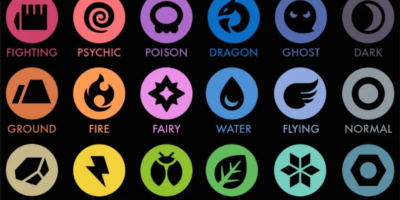Although I could have worked for a tech startup right here in Waterloo, this past summer I chose to do so far, far away. Coordinating through Engineers Without Borders Canada’s Junior Fellowship in Human Development program, I was placed with VOTOmobile.org, a software-as-a-service for mobile mass communications for citizen engagement and data-driven decision-making. We were based in Kumasi, Ghana, a commercial center of 2.5 million people and home to the prestigious Kwame Nkrumah University of Science and Technology. There, I was working on product development (functionality and usability) and business development (pilots projects and marketing) with a team made up of Ghanaian computer scientists and some Canadian staff. In some ways, it was a much more engineering-focussed position that most EWB jobs, which tend to focus on change at an institutional or market level rather than technical. However, it was a long way away from historical projects of EWB and many other organizations, which rallied around sentiments about how free service or product provision was the way to develop Africa.
Having returned from Ghana, my perception of it and more broadly of the African continent has changed a lot from what I was exposed to from my life in Canada; notably advertisements for NGOs raising money, movies like the Last King of Scotland and District 9, and what I’d read from development literature. To me it seems entirely natural that a vibrant tech scene exists in Ghana and all over Africa, that 10 of the top 20 fastest growing economies are in Sub-Saharan Africa (and all 20 are in Africa or Asia), and that the diverse cultures and sometimes radically different worldviews of people have Africa poised to develop innovative solutions to global problems. However, coming back and being exposed to Canadian media has made me uncomfortable with how our culture looks at the world. Here are some of my biggest beefs. These are not just my complaints; I truly believe that humanity’s issues are global and must be addressed globally. We have a lot of unlearning to do to look at the world outside us in a realistic and constructive way.
Africa is homogenous
“So, how was Africa?” – I’ve heard this so many times. Seen silhouettes of the continent on shoes and shirts. Although Panafricanism is a powerful idea, by-and-large I see the way we look at Africa as one thing in Canada as a gross generalization. In Ghana alone there are over 100 linguistic and ethnic groups (a challenge and business opportunity for VOTO’s voice services) and landscapes ranging from smoothly rolling savannah to mountainous rainforest. Even communications of EWB bug me – posters for an upcoming fundraiser feature a large silhouette of Africa and the words “Run to End Poverty”. To me this is problematic on a few levels- it’s calling all of Africa impoverished, it’s showing it as homogenous, and it’s creating the perception that actions by Canadians are what’s going to end poverty. At at least one other Canadian university, these same posters were removed after complaints by that institution’s African student’s association. Fun fact – the previous version of these posters made the Africa silhouette into the sole of a foot by adding toes, despite this being pretty offensive in Muslim countries.
Africa is poor
Like Canada, Ghana had poor neighbourhoods and rich neighbourhoods. The rich bubble didn’t see the poor so much and the poor were poor for a number of reasons: not working hard enough was not one of them. I lived in a 16 bedroom house with ensuite bathrooms in each bedroom, and this was the cheapest office/living space we could find. Yes, by standard indicators of human development, on average there is a lot of poverty in many African countries. There are, however, people living in the same conditions for the same reasons in every country in the world. There are kinds of capital or potential not accounted for in metrics like the GDP or HDI that set up African countries to succeed where more industrially-oriented countries (to whom the indicators are tailored toward) are failing.
Africa needs help
“I get by with a little help from my friends” is a statement that is probably true on several levels for most engineering students, and indeed even at a country level we benefit from help. Internationalism is fine; what’s not fine is this communication that impoverished African countries need Western intervention with Western ideas to improve. Such solutions rarely work on a technical level, and feed a bigger and more dangerous perception problem. Let’s look at Toms shoes for instance, which you can buy all over Northern Ghana, with your very own “Not for resale” stamp on the footbed and a slightly cheaper workmanship than the Western consumer variety. Toms sells the idea of helping Africa to Western markets, but buys shoes from manufacturers in China. Really helping Africa might include supporting a healthy, regulated market economy like we expect our own country to have by investing in the manufacturing industry – something that we actively don’t do through various trade regulations and loan conditionalities. But the happy idea of helping Africa with donations is a lot more likable. The technical outcomes of the Toms development programme are unsustainable at best, market disabling at worst, but it also feeds the attitudes that keep such simplistic and paternalistic approaches to development popular, which is possibly even more harmful.
A corollary to the Africa needs help perception is the “You should be the one to help: idea. This is a hard topic to navigate: I’m passionate about people being active and empathetic, but in the development sector sphere there is an implicit idea than Western volunteers are “better” or “more suitable.” This is something I really struggled with, trying to make myself sound humble when I was given so much unwarranted agency by privilege. In reality, outside volunteers have a valuable beginner’s eye and can more easily be critical and hypersensitive… but they cost a lot more, get sick all the time, can’t speak the language, and generally have no idea what’s going on ant the nuanced level at which change needs to be carried out. Ignoring everything outside my personal experience, my placement was the most challenging and gratifying co-op I’ve had, and something I’d recommend trying out for anyone who thinks they have a good handle on how the world works. Applications for 2014 Junior Fellows go out this month: visit uwaterloo.ewb.ca to join the mailing list they’ll be on.







Leave a Reply